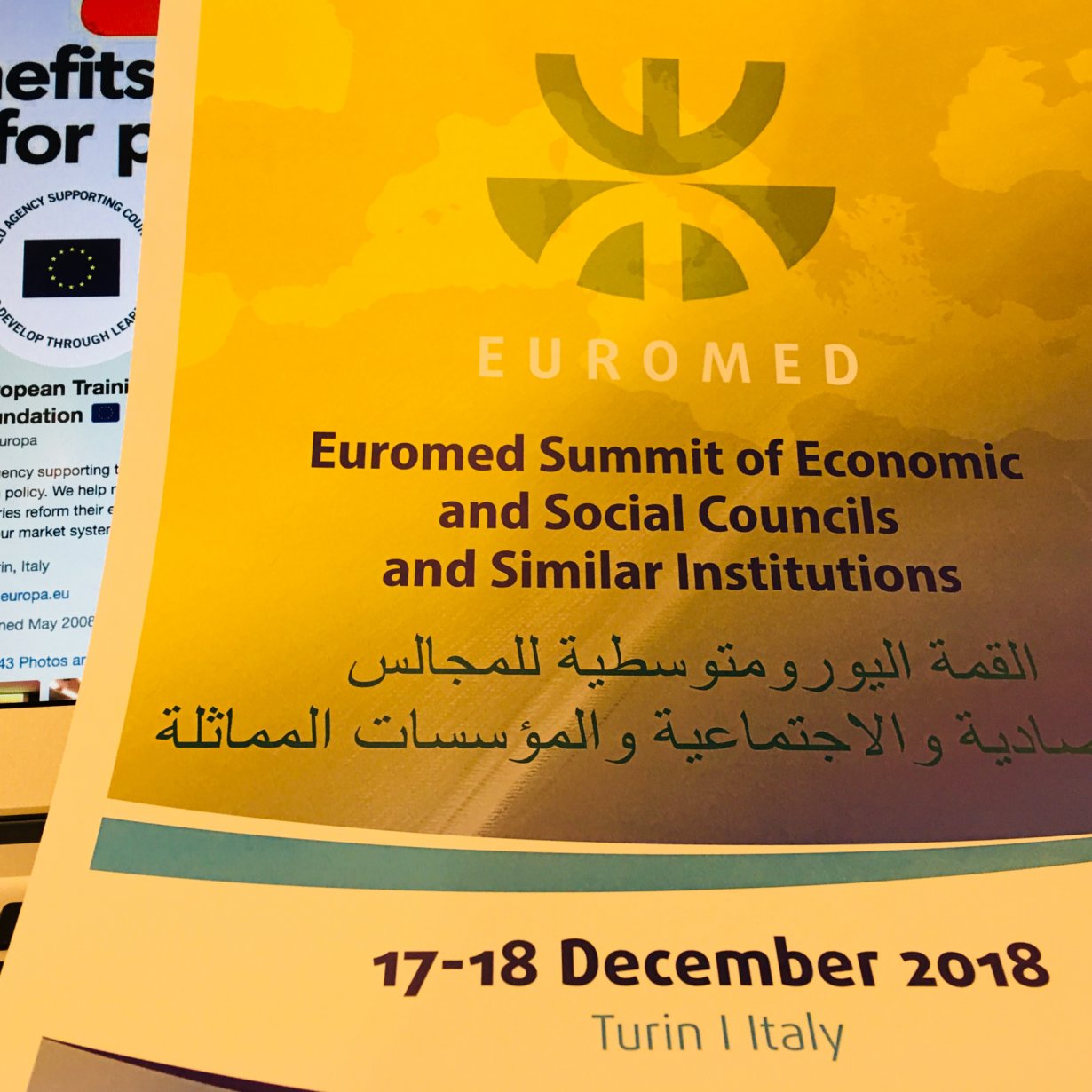
EuroMed: the future starts with vocational education
Around 120 representatives from the European Union and Southern Mediterranean countries are gathering in Turin, Italy, for a two-day summit on the role of education and training in the Euro-Mediterranean region.
Around 120 representatives from the European Union and Southern Mediterranean countries are gathering in Turin, Italy, for a two-day summit on the role of education and training in the Euro-Mediterranean region.
Organised by the European Economic and Social Committee (EESC) with the support of the European Training Foundation, the Euro Mediterranean Summit of Economic & Social Councils brings together representatives from economic and social councils, or similar institutions, representatives of employers, trade unions, other economic and social interest groups and NGOs from countries which are members of the Union for the Mediterranean (UFM).
While opening the event, the EESC President, Luca Jahier, highlighted the key role of social partners in setting up the proposals which should go to policy makers – and highlighting the central role of vocational education. “The EU is an inspiration”, added the ETF Director, Cesare Onestini, “but there’s a lot of inspiration that comes from the EuroMed region, and we’re there to help countries identify lines for action”.
Being aware of data is key for countries to design policies. With one third of the population aged under 15, and youth unemployment reaching up to 30%, countries from the Southern Mediterranean are facing challenges in offering youngsters opportunities for a better future. Vocational education is still negatively perceived, and is not considered a first choice by families.
As Cinzia Del Rio, EESC Rapporteur said, “a shortage of funding is preventing countries from planning long term education and economic social measures, which has a consistent impact on future opportunities for citizens”.
The Euro-Mediterranean Summit of Economic and Social Councils and Similar Institutions continues until Tuesday, 18 December and will conclude with the adoption of recommendations that will be sent to the political authorities of the countries involved in the UFM Ministerial Summits and disseminated widely among civil society organisations in the region.
The event is co-financed by the European Commission.
More here
Did you like this article? If you would like to be notified when new content like this is published, subscribe to receive our email alerts.